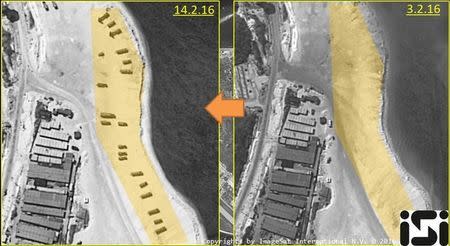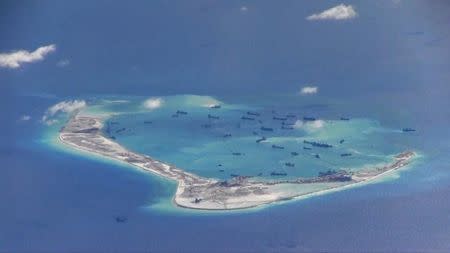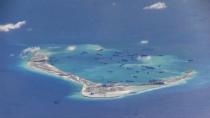Vietnam protests China missile deployment, Australia, NZ urge restraint
By Martin Petty and Colin Packham
HANOI/SYDNEY (Reuters) - Vietnam protested to China on Friday at a "serious violation" of its sovereignty over Beijing's apparent deployment of an advanced missile system on a disputed South China Sea island, while Australia and New Zealand urged Chinese restraint.
Tensions between China and its neighbours over maritime territory have risen since Taiwan and U.S. officials said Beijing had placed surface-to-air missiles on Woody Island, part of the Paracel archipelago it controls.
"Vietnam is deeply concerned about the actions by China. These are serious infringements of Vietnam's sovereignty over the Paracels, threatening peace and stability in the region as well as security, safety and freedom of navigation and flight," Foreign Ministry spokesman Le Hai Binh said in a statement.
"Vietnam demands China immediately stop such erroneous actions."
The statement said diplomatic notes had been issued to China's embassy in Hanoi and to United Nations Secretary General Ban Ki-moon to protest at Beijing's activities, including the building of a military helicopter base on Duncan island.
Earlier, Australian Prime Minister Malcolm Turnbull had urged claimants to refrain from island-building and militarization in the South China Sea.
"It is absolutely critical that we ensure that there is a lowering of tensions," said Turnbull, speaking after a meeting in Sydney with New Zealand counterpart John Key.
China claims most of the South China Sea, through which more than $5 trillion in global trade passes every year and which is believed to have huge deposits of oil and gas. Vietnam, Malaysia, Brunei, the Philippines and Taiwan have rival claims.
The Philippines said it was "gravely concerned" about the reports of missiles being deployed on Woody Island.
"These developments further erode trust and confidence and aggravate the already tense situation," its Foreign Ministry said in a statement.
Australia's Turnbull said if Chinese President Xi Jinping was serious about avoiding the so-called Thucydides Trap, a foreign policy metaphor inspired by ancient Athens and Sparta in which a rising power causes fear in an established power that escalates towards war, he must resolve disputes through international law.
"President Xi is right in identifying avoiding that trap as a key goal," said Turnbull.
U.S. PATROLS
Beijing has been angered by air and sea patrols the United States has conducted near islands China claims. Those have included one by two B-52 strategic bombers in November and by a U.S. Navy destroyer that sailed within 12 nautical miles of Triton Island in the Paracels last month.
Key said New Zealand, the first developed country to recognise China as a market economy and to sign a bilateral free trade deal, was leveraging its relationship with China to urge measures to lower tensions.
"Does that give us more opportunities to make that case, both privately and publicly? ... my view is yes," said Key, noting that both Australia and New Zealand are now also part of the Beijing-led Asian Investment Bank.
The comments come after Australian Foreign Minister Julie Bishop visited Beijing, where she raised the issues of the missiles and the South China Sea in meetings with Chinese officials, including top diplomat Yang Jiechi.
Chinese Foreign Ministry spokesman Hong Lei said Australia and New Zealand "are not countries involved in the South China Sea".
"We hope the two countries can objectively view the historical developments of the South China Sea, not neglect the facts, and not put forward proposals that are unconstructive," Hong told reporters.
The Chinese government has offered few details in response to the missile claim, while accusing Western media of "hyping up" the story and saying China has a legitimate right to military facilities on territory it views as its own.
An influential Chinese state-run tabloid, the Global Times, in an editorial on Friday, described the HQ-9 missiles that are apparently now on Woody Island as "a typical type of defensive weapon", but warned the People's Liberation Army might feel compelled to deploy more weapons.
"If the U.S. military stages a real threat and a military clash is looming, the PLA may feel propelled to deploy more powerful weapons," it said.
At a summit of Southeast Asian leaders in California on Monday, Vietnam's prime minister suggested to U.S. President Barack Obama that Washington take "more efficient actions" against militarization and island-building.
(Additional reporting by Ben Blanchard and Michael Martina in BEIJING and Manuel Mogato in MANILA; Editing by Lincoln Feast and Alex Richardson)











